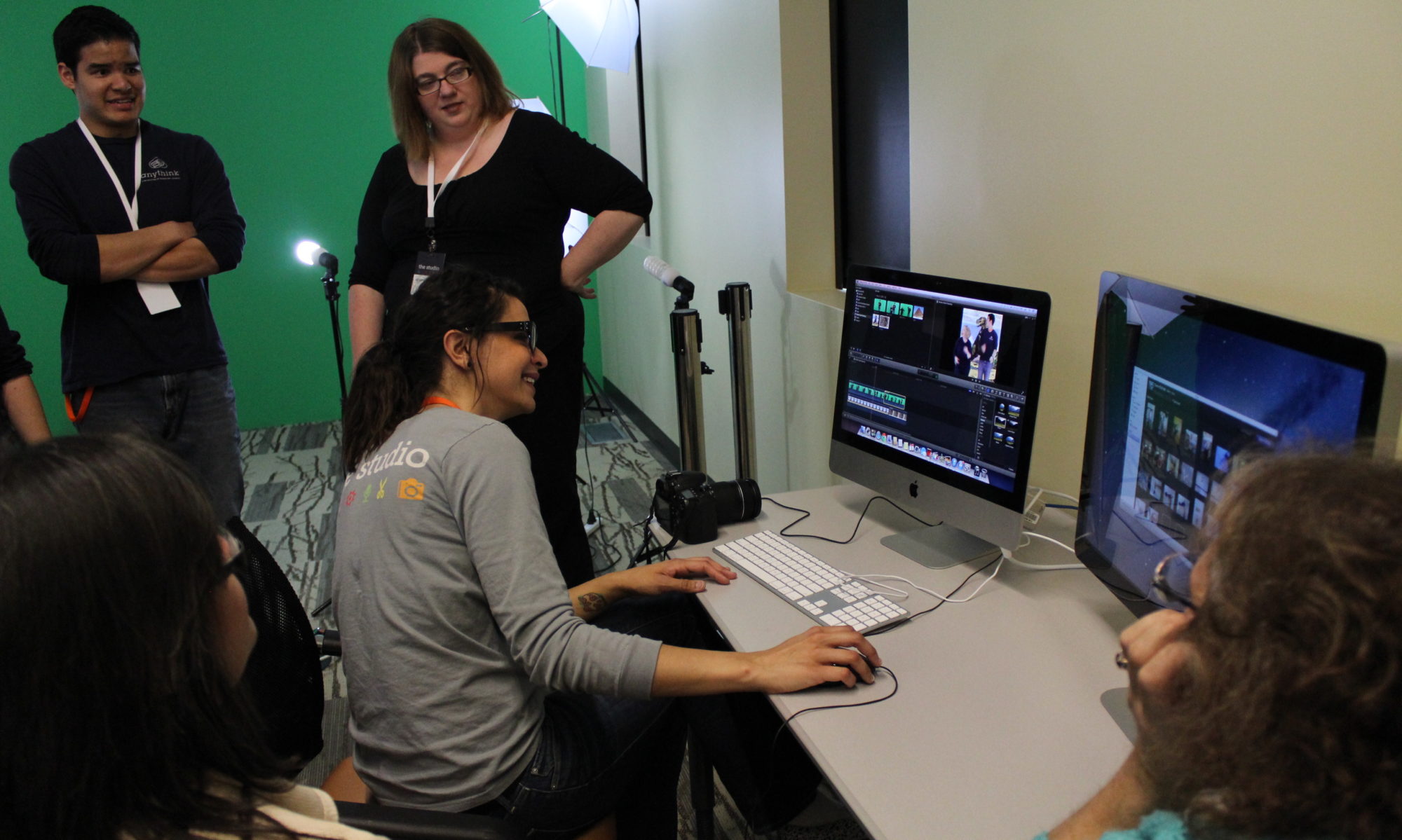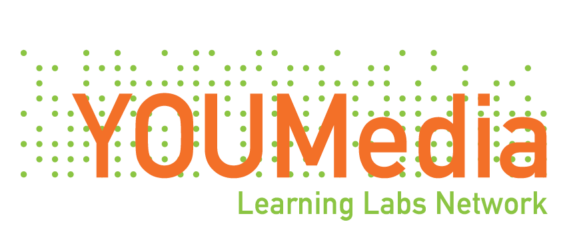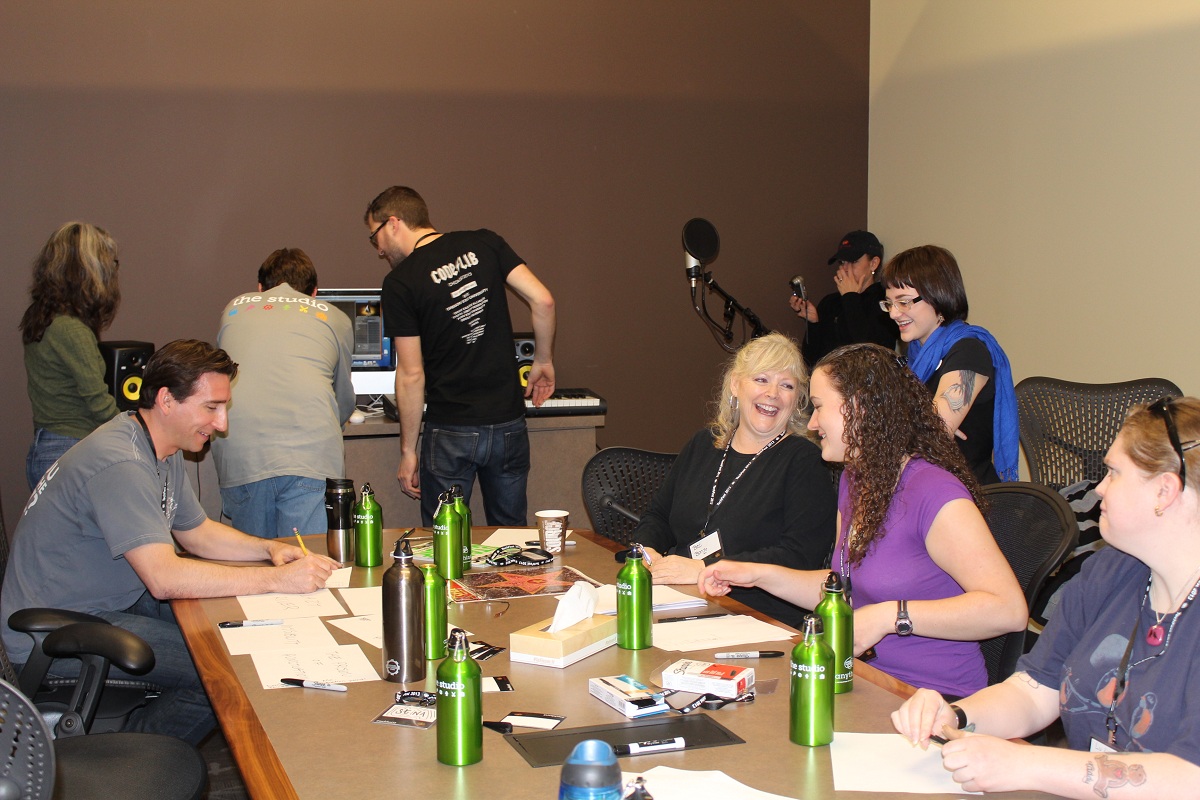We were fortunate to build on the well-established knowledge base of action research and practitioner-led inquiry that the National Writing Project has built over the past 40 years. This included the simplest of methods: us all making a commitment to regularly collect data through observations and journaling, then mining that data for patterns locally with our libraries and staff, and then having regular conversations (conference and video calls) with other labs to help narrow down and identify our problems of practice.
As part of these monthly meetings and conversations, we used a version of a consultancy protocol, which enabled us to both listen and be listeners to each other in a structured way, then give feedback. A recurring question we would ask each other to identify the themes that became our framework was, “what is post-emergent-y about what you’re describing?”
During our monthly meetings we discussed articles we had read together on making and makerspaces. Some of the things we read included:
- When Making is Inclusive, Good Things Happen. Make Magazine (March 11, 2016)
- What Did You Make Today? Exploring Equity in Making. Edsurge (May 19, 2016)
- Why I am Not a Maker. The Atlantic (January 23, 2015)
- The Making + Learning framework, Children’s Museum of Pittsburgh.
As we moved towards sharing and disseminating our findings outside of our five libraries (and felt comfortable sharing our problems outside of our monthly meetings) we recorded podcasts where we talked with each other about our challenges as a way of seeing them from a different perspective. We also posted about them in the YOUmedia Community of Practice, the platform that the wider YOUmedia Network (and beyond) uses to connect, ask questions, and share resources. The Community of Practice, or CoP, is managed by the Association of Science-Technology Centers, and free and open for anyone to join and access resources. Many podcasts are archived there, including these podcast where we discuss our work around post-emergent makerspaces in our local contexts:
- The Studio at Anythink
- Maker Jawn at Free Library of Philadelphia
- TECH Lab at Billings Public Library
- QuaranTEEN at Lynn Public Library
- The Labs @ Carnegie Library of Pittsburgh
We presented on this work (with a work-in-progress framework) at the 2016 Digital Media and Learning Conference at the University of California at Irvine.Our session was called Blazing the Trail: Action Research and “Post-Emergent” Library Makerspaces.
You can also read an article about this project and our thoughts and challenges that went along with it on our network’s website, youmedia.org.


